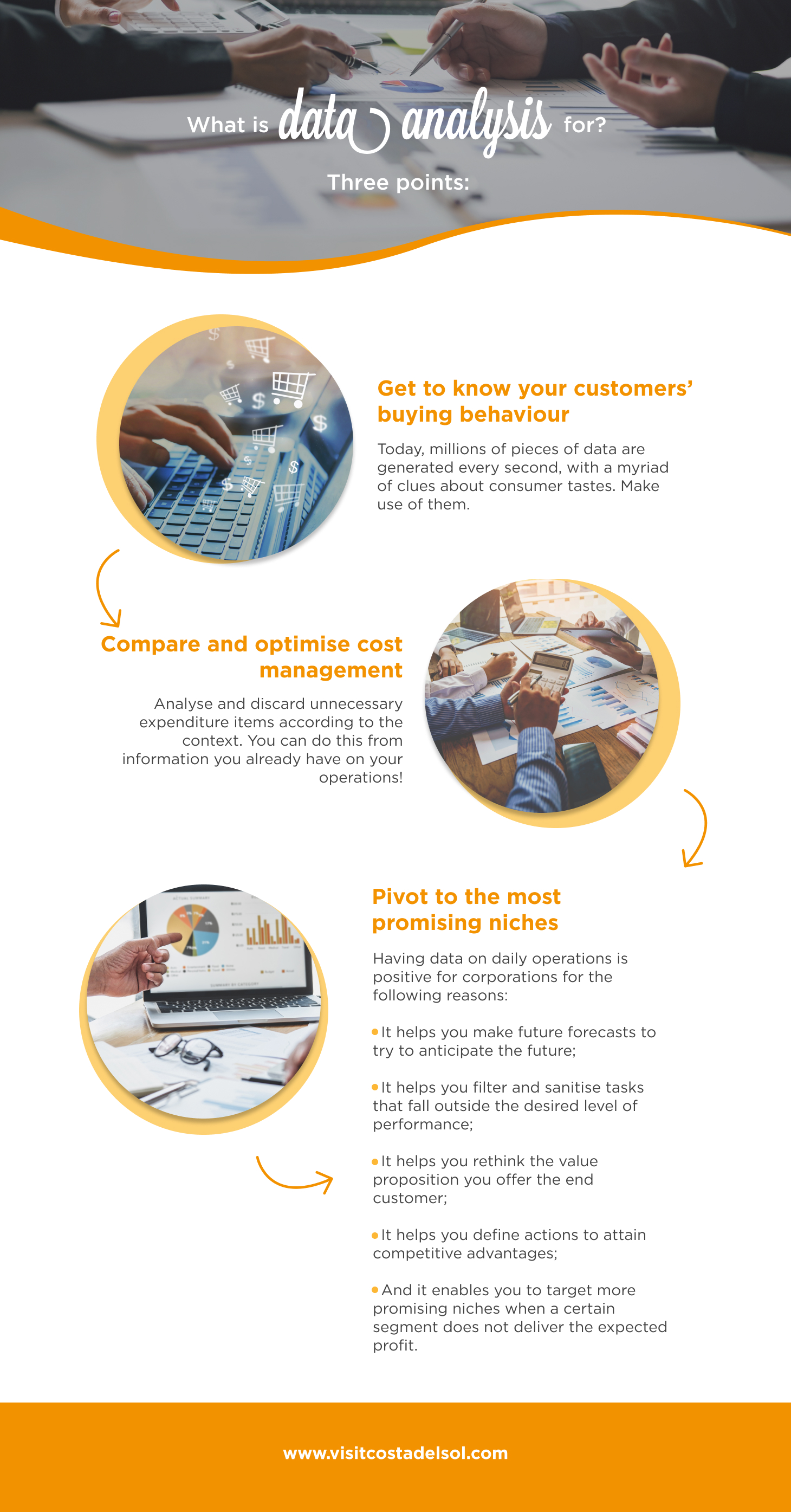Analysing the information that continually reaches us through different channels can help us to be more efficient and competitive as a company. Data analysis helps to discover patterns, information gaps and, of course, to keep corporate information organised. For example, what is the point of having a large e-mail marketing list if the vast majority do not open our e-mails? And that’s just a small sample of the role of analysis in business!
Big Data for companies, which we already discussed in another article, is as fundamental nowadays as advertising or marketing can be. Competitiveness and market demands make data analysis a viable way to seek efficiency through business strategies. Here are three keys to what you can do with the data your business collects. Read to the end!
What data analysis is and why it is important
We could define data analysis as a set of procedures aimed at obtaining valuable information for decision-making from different bases. In general terms, it offers companies a range of opportunities, because if in times past valuable assets were resources such as oil or minerals, in the information society, data is now gold.
Knowing what data is available in a business and knowing how to study it provides valuable stimuli to drive a business to success (or as close to it as possible). Furthermore, its correct management provides ideas and lines of action geared towards research, development and innovation.
What is data analysis for? Three points:

1. Get to know your customers’ buying behaviour
Annual sales databases, for example, are full of useful information on customer buying behaviour. The same is true for network interactions and an eCommerce path to purchase. Have you ever thought about how it could help you to know exactly what items your customers are looking for that end up in the shopping cart? If social media interactions are higher between posts on a certain product range, don’t you think you can capitalise on that interest? There are plenty of examples like these! You just need to know how and where to get the information, which you are sure to have at hand. Today, millions of pieces of data are generated every second, with a myriad of clues about consumer tastes. Make use of them.

2. Compare and optimise cost management
Meanwhile, having clean expenditure and revenue reports makes it possible to compare the return on each investment in order to optimise cost management. This is crucial for survival, as profits depend not only on sales, but also on fixed and variable costs. Analyse and discard unnecessary expenditure items according to the context. You can do this from information you already have about your operations!
3. Pivot to the most promising niches
Business decisions can be of three types: short-, medium- or long-term. They must all be as successful as possible in order to bring the business to a successful conclusion. Having data on daily operations is positive for corporations for the following reasons:
- It enables them to forecast the future and try to anticipate it;
- It enables them to filter and sanitise tasks that fall outside the desired level of performance;
- It enables them to rethink (judiciously) the value proposition offered to the end customer;
- It enables them to define actions to achieve competitive advantages (i.e. to offer what the competition does not have);
- Ultimately it enables them to target more promising niches when a certain segment does not deliver the expected profit.

Data analysis, as you can see, is profoundly beneficial in today’s liquid age. From it, businesses can try to make more informed decisions in the midst of constant uncertainty. Many industries change in a matter of a few years and moving puts companies in a position of permanent vulnerability, where having a sound data analysis methodology in place can make all the difference, mitigating risks and generating benefits. What are you waiting for to put it into practice?







